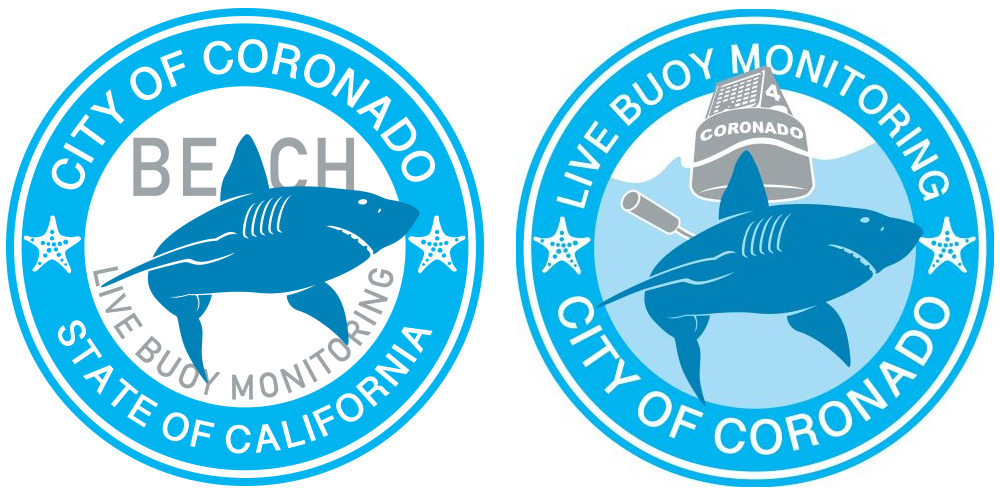An investment in a positive change aligned with the City of Coronado’s values and culture of embracing an act that contributes to human and marine welfare and ecology (Item 10b) was presented to the Coronado City Council on Tuesday, March 16th.
Let’s press the City of Coronado to upgrade to four real-time Live Buoys with UW receiver mooring systems along Coronado’s 1.7 miles of Pacific Ocean shoreline[1]. According to Dr. Chris Lowe, California State University, Long Beach, Shark Lab, this would rank Coronado as “The best network in the country.” Why would we want anything less than the best?
Live Buoys will allow a greater scientific and educational understanding of Coronado’s Great White Shark population for the greater good and Coronado’s ever-growing beachgoing population.
Facts:
- Southern migration along the California Pacific Coastline continues.
- Five-fold increase in White Sharks with increased sightings over last 10 years.
- Aggregations of as many as 30-40 White Sharks.
- Coronado’s White Shark population has extended their stay.
- A large uptick in human recreational activities in the ocean.
- Coronado Beach Lifeguards need Real-Time information
The time is now. Let’s get this one done, ahead of the Summer of 2021.
Learn more about Live Monitor Buoys.
[1] Live Buoys will detect tagged sharks but are not a guarantee of safety. The Live Buoys work by receiving signals from acoustic tags, which Shark Lab have affixed to both local sharks and the greater population at large: 110 White Sharks carrying live tags from Southern California and another 100 adult white sharks from Central California and Guadalupe Island. When a tagged shark swims within range of the receiver (100-300 yards) the Live Buoys immediately transmit a text message alert. Only Coronado Beach Lifeguards will receive these messages and they have received training on how to react when a White Shark is detected. Innovasea’s Live Buoy has a fixed asset cost of $14,300 per buoy and a $750 per buoy annual data plan/license fee. Coastal Commission waiver to deploy these moorings along SoCal beaches and the deployment and maintenance is provided by California State University, Long Beach, Shark Lab. Total program cost $60,200 for the 1st year, then $3000 per year (total activity costs of 4 Live Buoys) for each successive year. Steve Ogles, Advocate for Live Buoy Monitoring.





